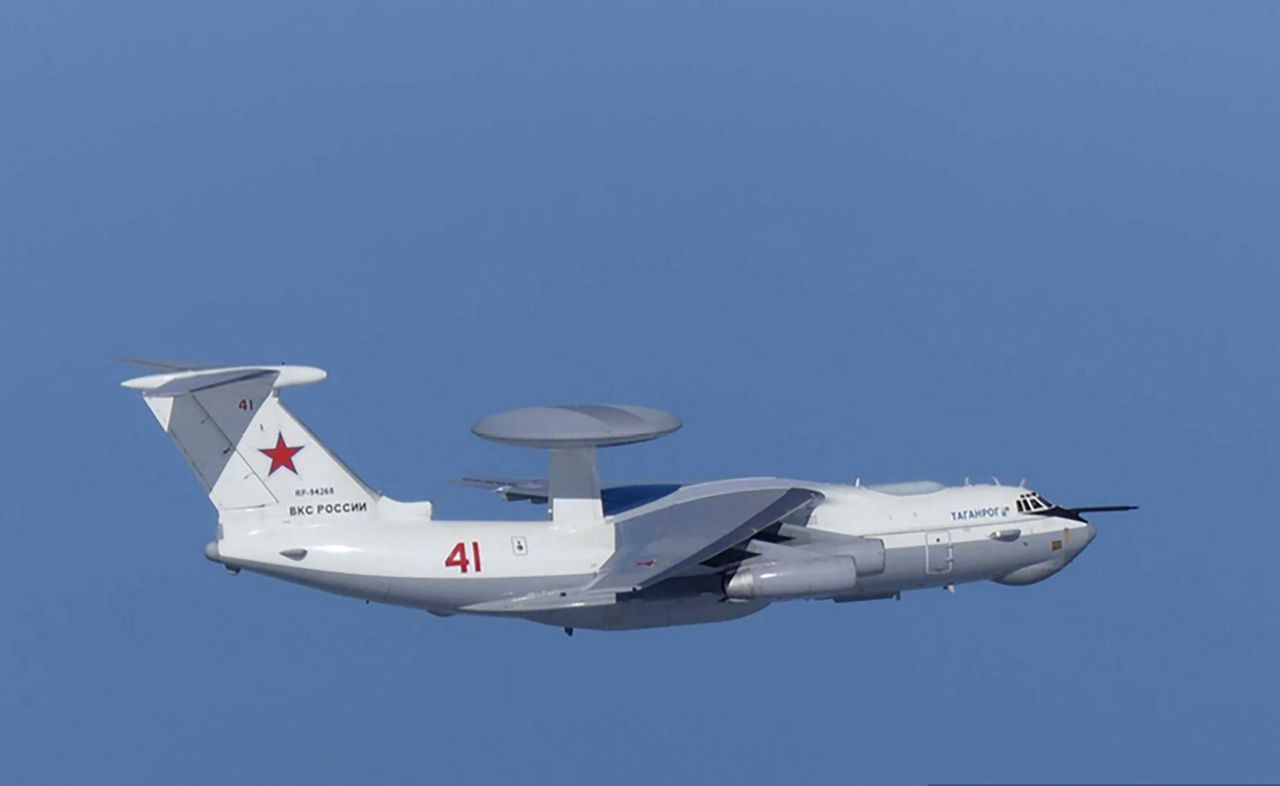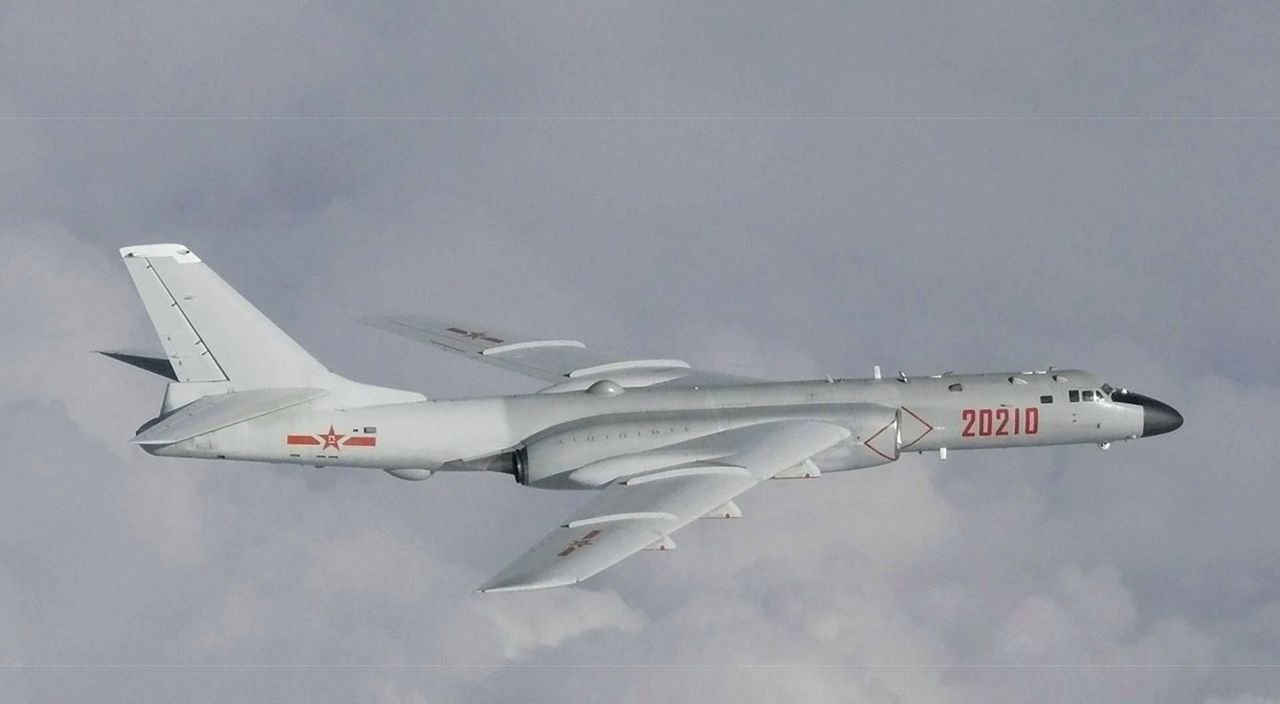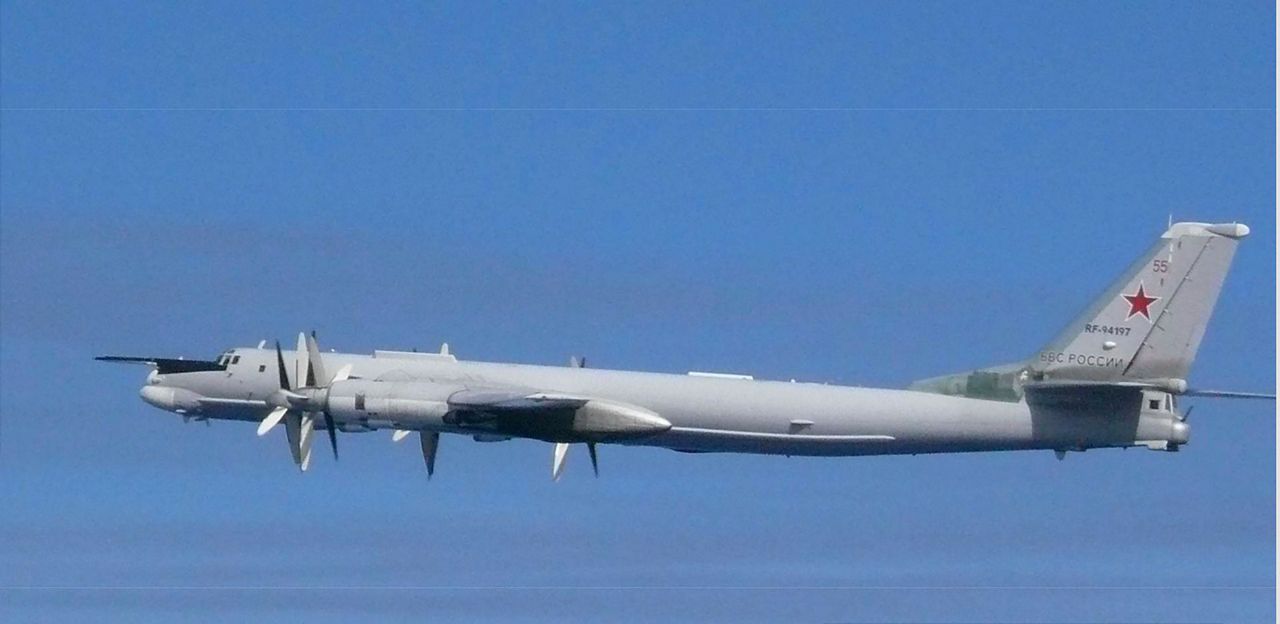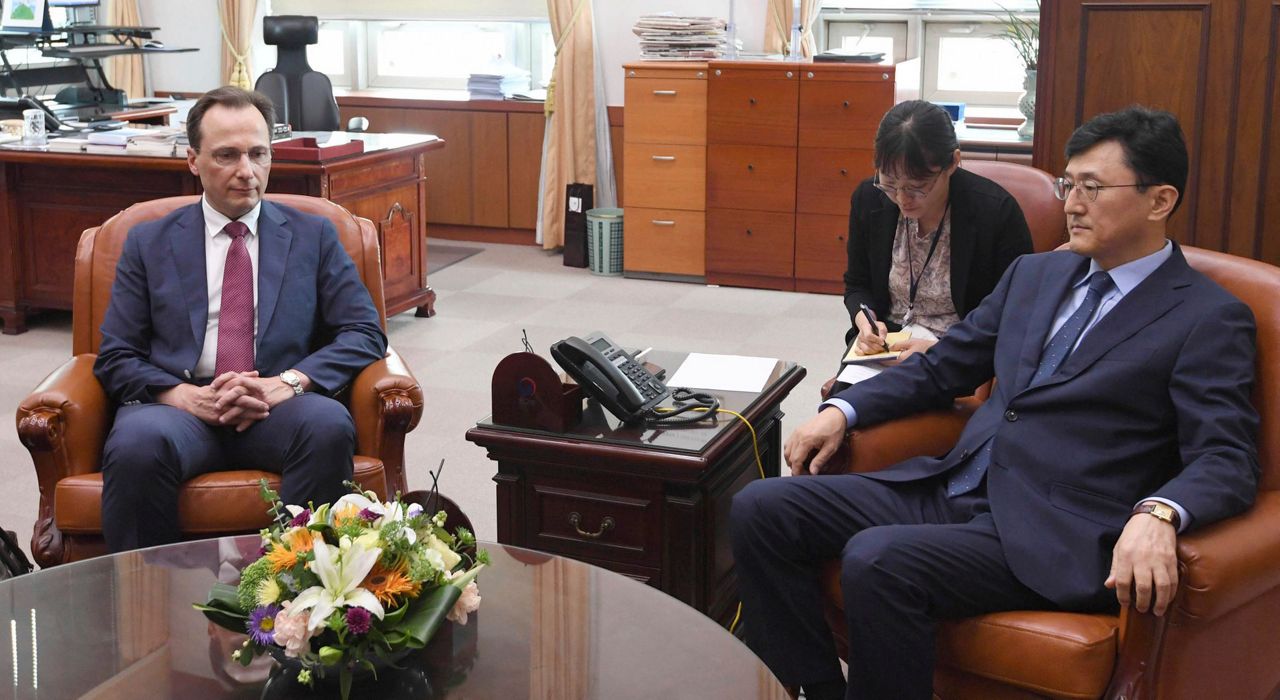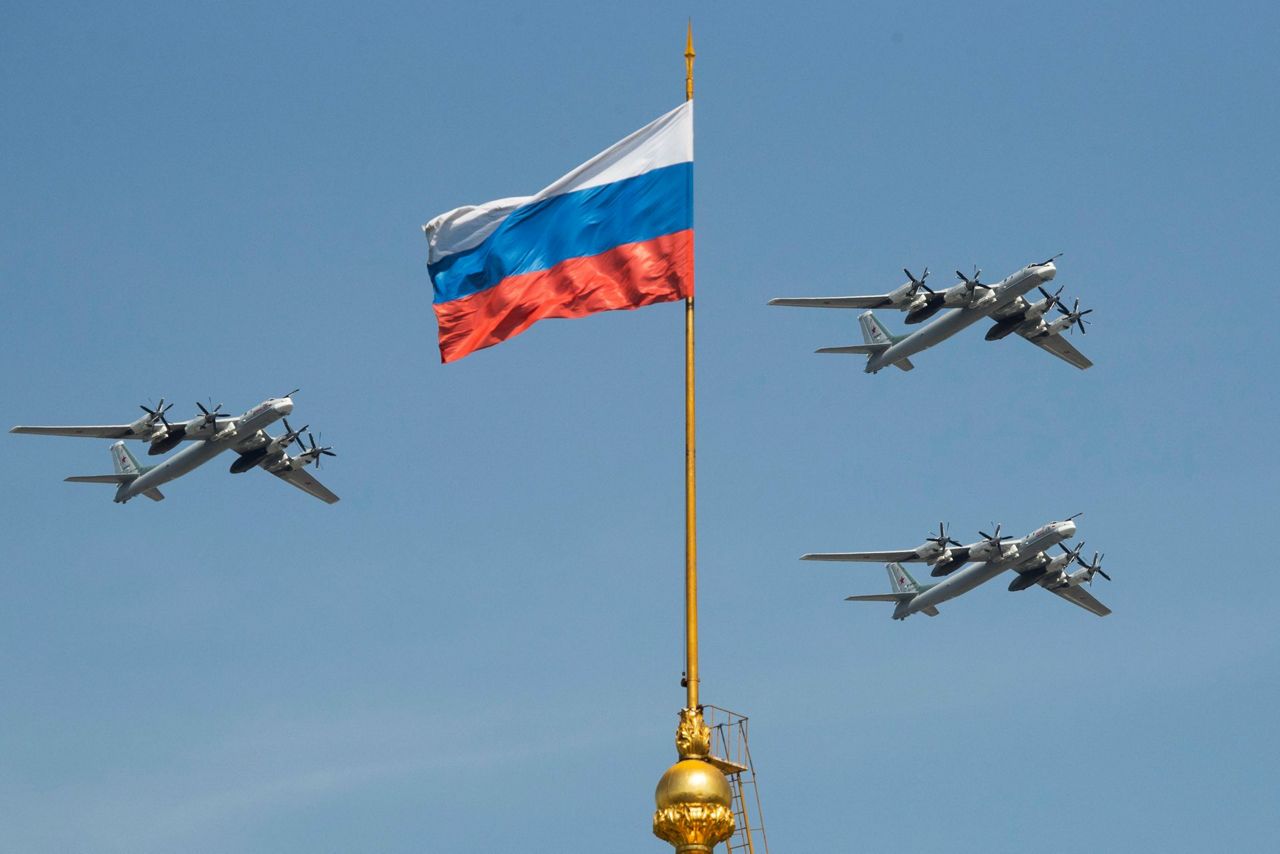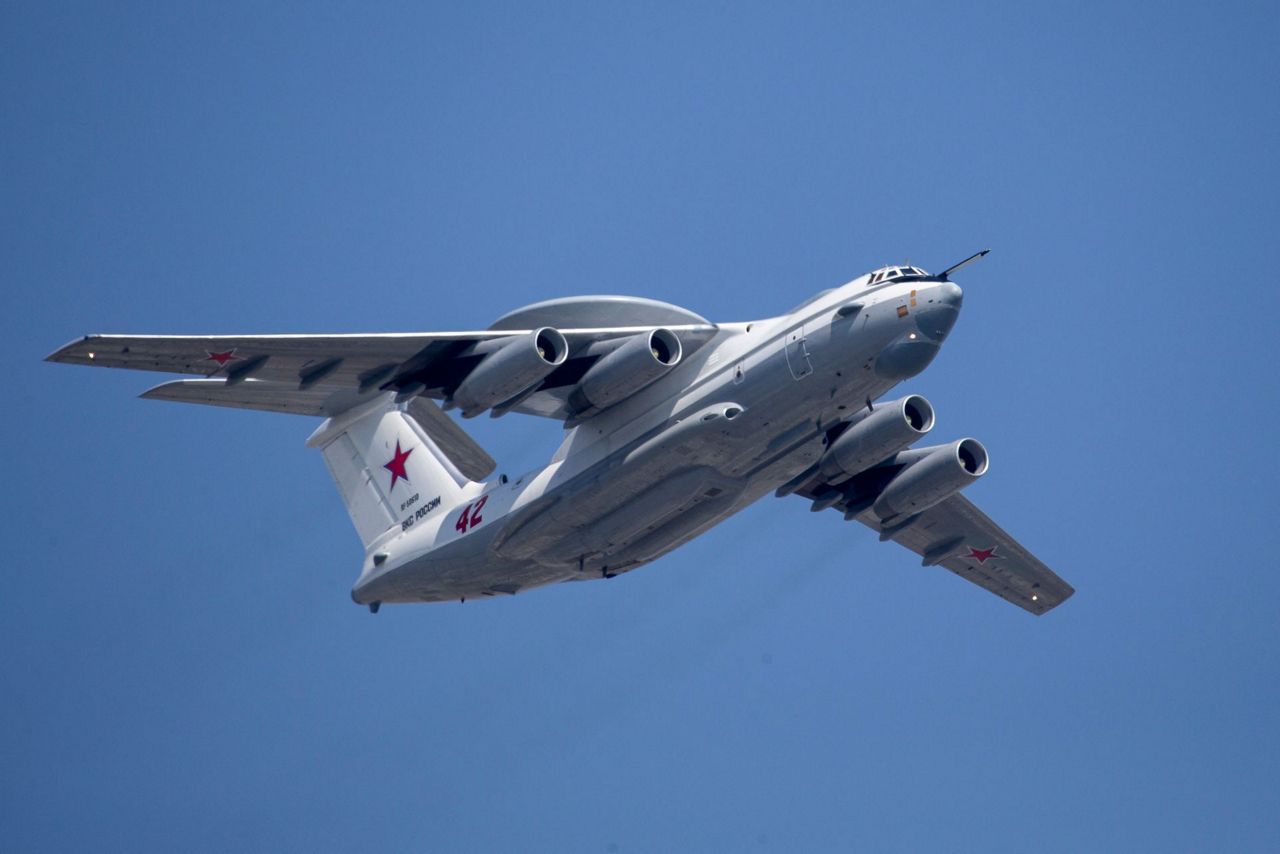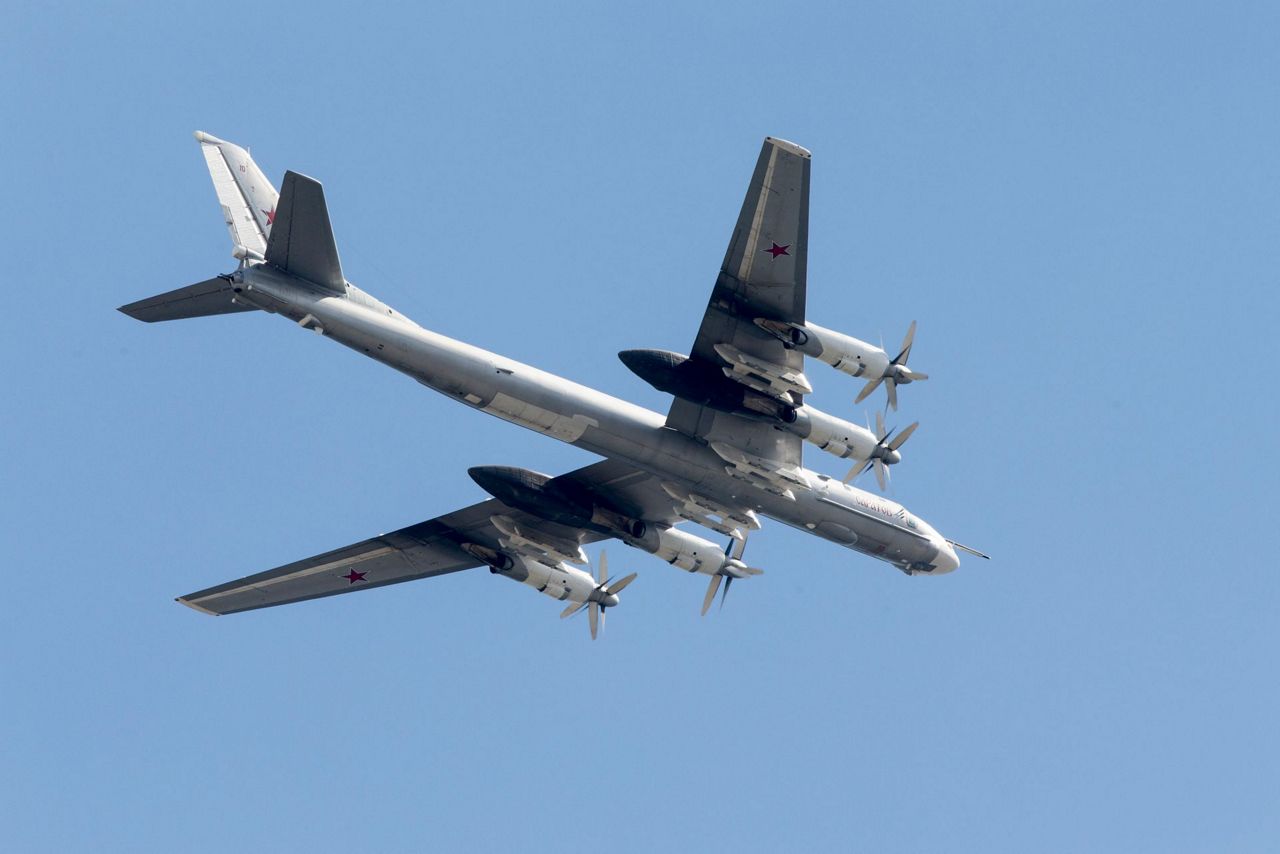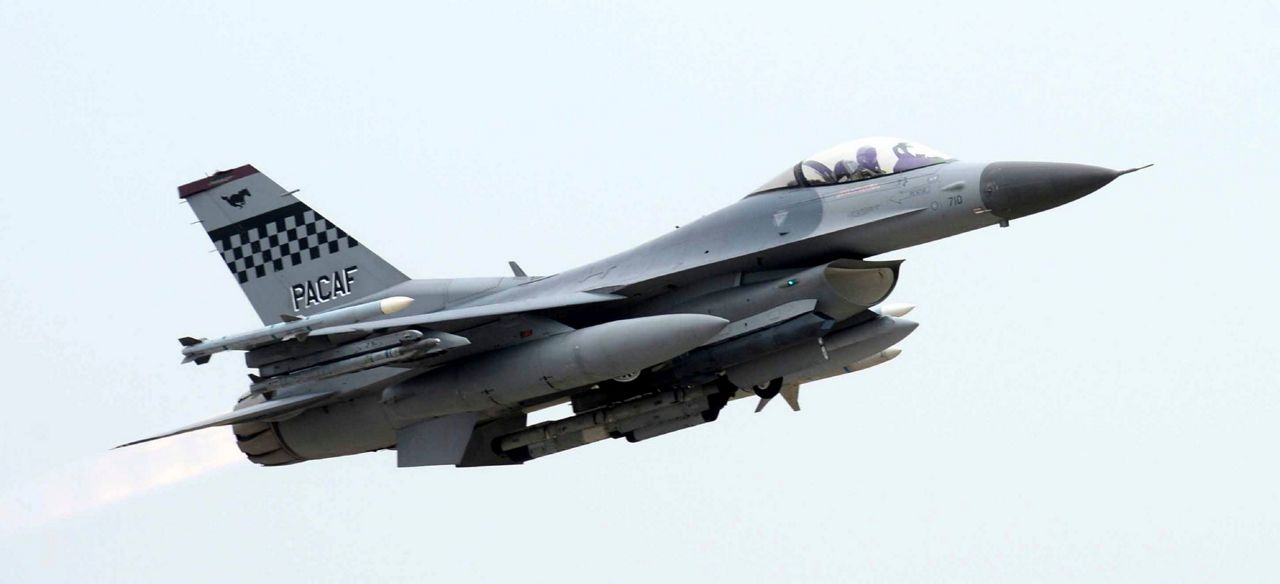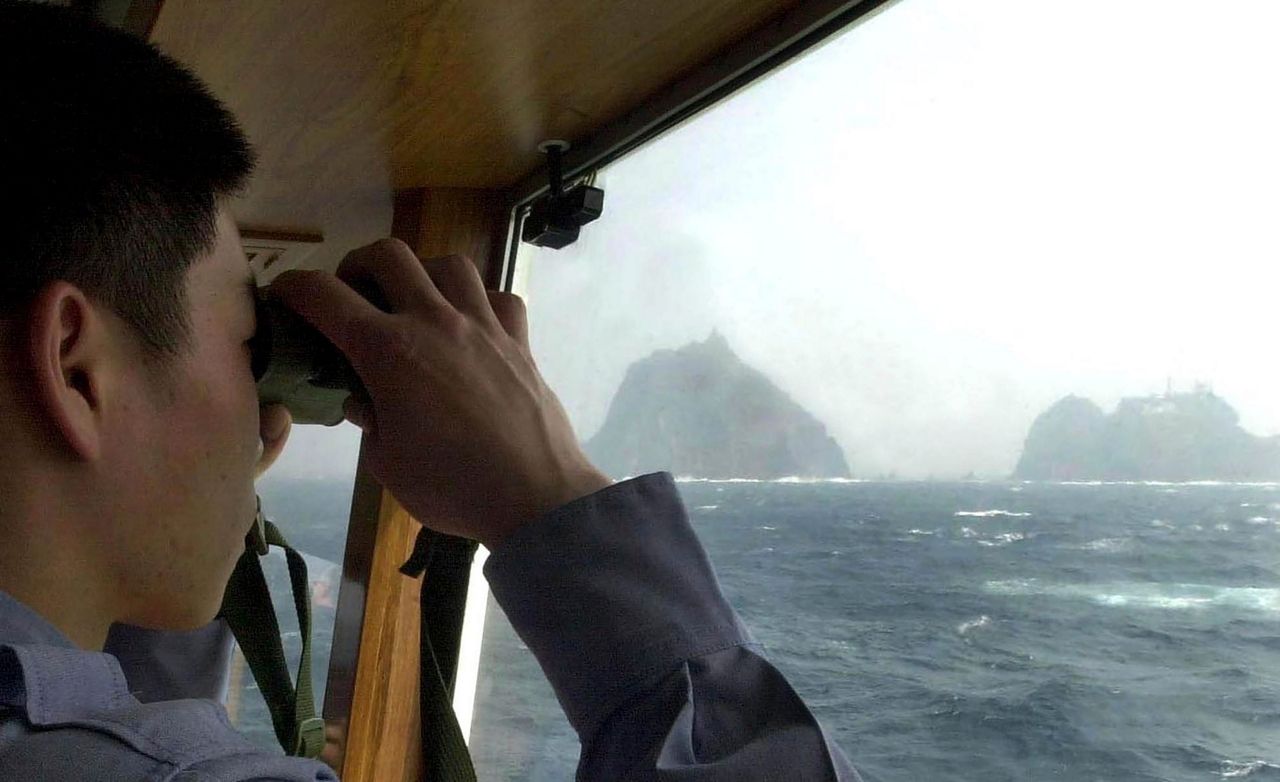SEOUL, South Korea (AP) — South Korean air force jets fired 360 rounds of warning shots Tuesday after a Russian military plane twice violated South Korea's airspace off the country's east coast, Seoul officials said in an announcement that was quickly disputed by Russia.
South Korea said three Russian military planes — two Tu-95 bombers and one A-50 airborne early warning and control aircraft — entered the South's air defense identification zone off its east coast before the A-50 intruded in South Korean airspace. Russia said later that two of its Tu-95MS bombers were on a routine flight over neutral waters and didn't enter South Korean territory.
According to South Korean government accounts, an unspecified number of South Korean fighter jets, including F-16s, scrambled to the area and fired 10 flares and 80 rounds from machine guns as warning shots.
Seoul defense officials said the Russian reconnaissance aircraft left the area three minutes later but later returned and violated South Korean airspace again for four minutes. The officials said the South Korean fighter jets then fired 10 flares and 280 rounds from machine guns as warning shots.
South Korea said it was the first time a foreign military plane had violated South Korean airspace since the end of the 1950-53 Korean War.
South Korea's Foreign Ministry and the Joint Chiefs of Staff summoned Russia's acting ambassador and its defense attache to protest.
Russia's Defense Ministry said in a statement that its planes did not enter South Korean airspace. It also said South Korean fighter jets didn't fire any warning shots, though it said they flew near the Russian planes in what it called "unprofessional maneuvers" and posed a threat.
"If the Russian pilots felt there was a security threat, they would have responded," the statement said.
South Korea's presidential national security adviser, Chung Eui-yong, told top Russian security official Nikolai Patrushev that South Korea views Russia's airspace violation "very seriously" and will take "much stronger" measures if a similar incident occurs, according to South Korea's presidential office.
The former Soviet Union supported North Korea and provided the country with weapons during the Korean War, which killed millions. In 1983, a Soviet air force fighter jet fired an air-to-air missile at a South Korean passenger plane that strayed into Soviet territory, killing all 269 people on board. Relations between Seoul and Moscow gradually improved, and they established diplomatic ties in 1990, a year before the breakup of the Soviet Union.
The airspace that South Korea says the Russian warplane violated is above a group of South Korean-held islets roughly halfway between South Korea and Japan that have been a source of territorial disputes between the two Asian countries. Russia isn't part of those disputes.
Japan, which claims ownership over the islets, protested to South Korea for firing warning shots over Japanese airspace. South Korea later countered that it cannot accept the Japanese statement, repeating that the islets are South Korean territory. Japan also protested to Russia for allegedly violating Japanese airspace.
South Korea said the three Russian planes entered the South Korean air defense identification zone with two Chinese bombers. South Korea said the Chinese planes didn't intrude upon South Korean airspace.
The Russian statement accused South Korean aircraft of trying to hamper the flights of Russian jets before "a vague missile defense identification area" that it said South Korea unilaterally defined. Russia said it had raised its concerns about the zone before.
Before their reported joint flights with the Russian planes, the Chinese warplanes entered South Korea's air defense identification zone off its southwest coast earlier Tuesday, South Korea's Defense Ministry said. Seoul says Chinese planes have occasionally entered South Korea's air defense identification zone in recent years.
South Korea's Foreign Ministry and Joint Chiefs of Staff registered their official protests with Beijing when they summoned China's ambassador and defense attache.
Chinese Foreign Ministry spokeswoman Hua Chunying said she was not clear about the situation but noted that the air defense identification zone is not territorial airspace and others are entitled to fly through it.
She took issue with a reporter's use of the word "violation" to ask about China's reported activity in South Korea's air defense identification zone. "I feel that given China and South Korea are friendly neighbors, you should be careful when using it, because we are not clear about the situation," she said.
___
Associated Press writers Nataliya Vasilyeva in Moscow and Mari Yamaguchi in Tokyo contributed to this report.
Copyright 2019 The Associated Press. All rights reserved. This material may not be published, broadcast, rewritten or redistributed.



